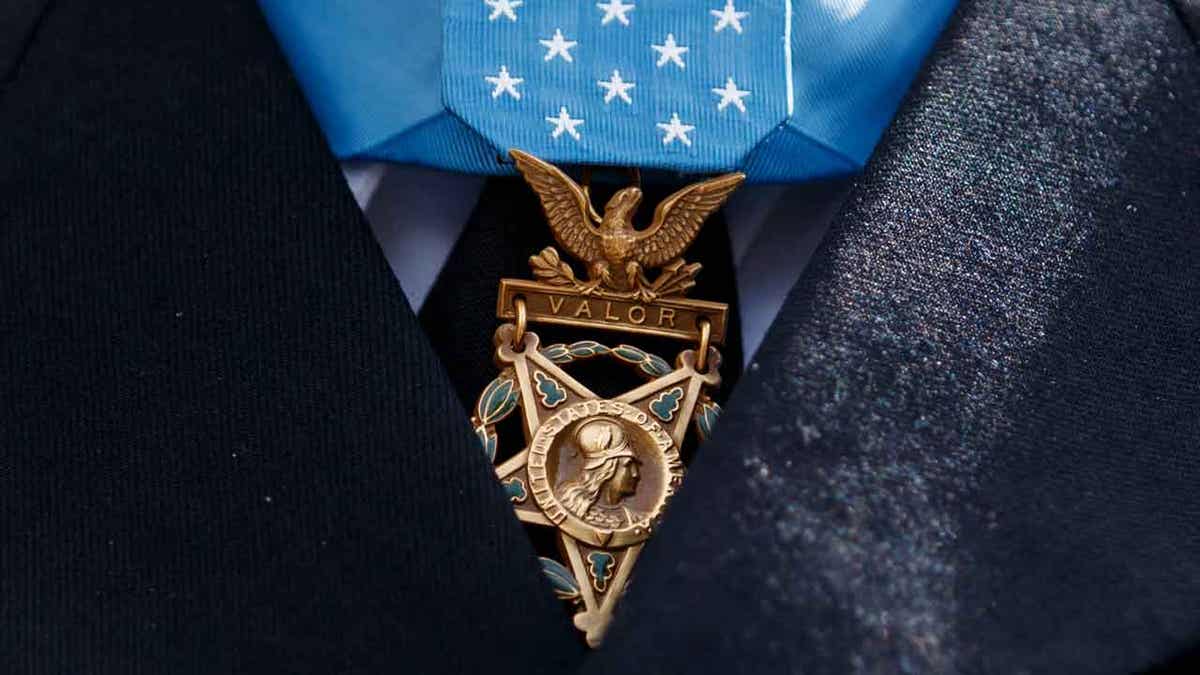
The Medal of Honor is seen around the neck of Medal of Honor recipient Army Staff Sgt. David Bellavia outside the West Wing of the White House in Washington, June 25, 2019. One of the first Black officers to lead a Special Forces team in combat will receive the Medal of Honor, the nation's highest award for bravery on the battlefield, nearly 60 years after he distinguished himself during the Vietnam War. President Joe Biden telephoned ret. U.S. Army Col. Paris Davis on Monday, Feb. 13, 2023, "to inform him that he will receive the Medal of Honor for his remarkable heroism during the Vietnam War." (AP Photo/Carolyn Kaster, File) (AP Photo/Carolyn Kaster, File)
What the world needs is more people like Gary Beikirch (pronounced Bye-Kirk). This Veterans Day, I’m inviting everybody to speak his name in tribute.
An elite Green Beret Army medic who served during the ruthless siege of Dak Seang, April 1, 1970, Beikirch was shot three times, temporarily paralyzed, and barely survived the siege. You’d think he would have given up.
But what he did while lying in the dirt, nearly destroyed by the enemy — that’s what makes his story so incredible.
SOLDIERS IN TRAINING RECEIVE OVER $1M IN COLLEGE SCHOLARSHIPS FROM US MILITARY AT NFL GAME
I interviewed Beikirch extensively in order to write his 2020 biography, "Blaze of Light." Over the two years that we worked together, I came to see him as a man of true strength, integrity, selflessness and resilience.
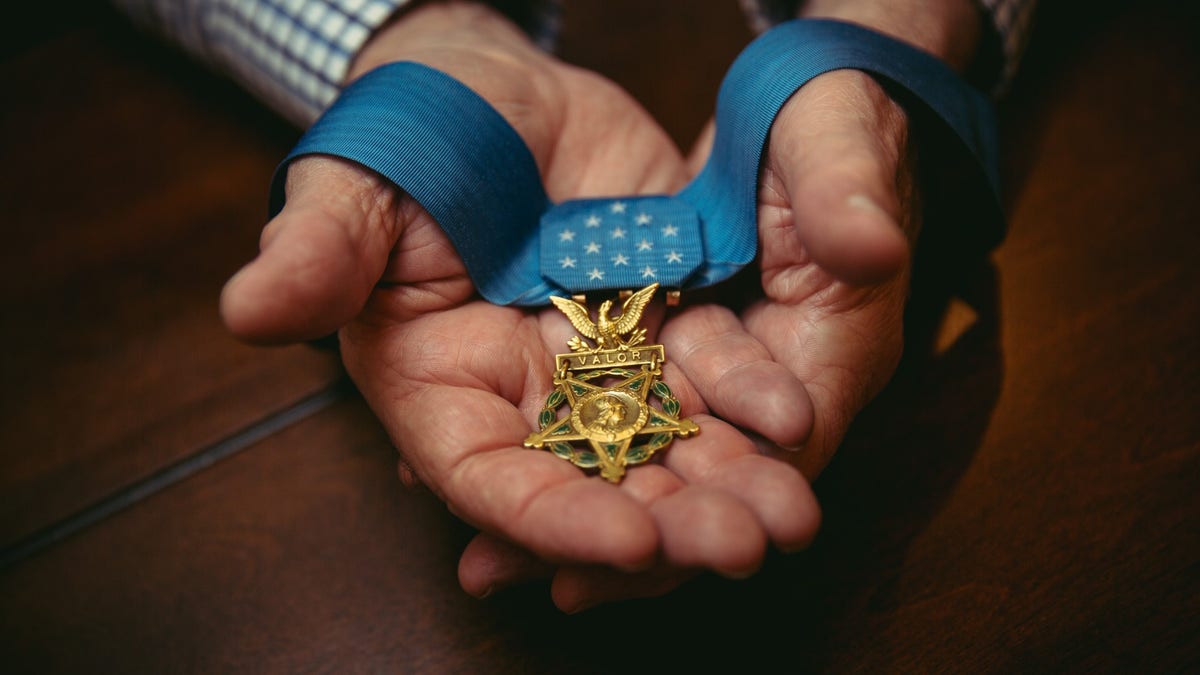
Green Beret medic Gary Beikirch's Medal of Honor, our nation's highest military award, which is given for acts of valor. (Photo courtesy Ben Bender)
His story begins like many. Beikirch was born August 29, 1947, in Rochester, New York. He joined the Army in August 1967, intent on helping people.
Then his story turns amazing — after enduring the arduous training of the Army’s Special Operations programs, he became a Green Beret medic — the best of the best — and was sent to Vietnam in June 1969. He served in a hospital in Pleiku, then as chief medic in the remote village of Dak Seang.
There, Beikirch lived among some 2,700 Montagnard soldiers and civilians of Vietnam’s Central Highlands region. He trained indigenous medics, treated sickness, promoted health and sanitation techniques and delivered babies. The Montagnards welcomed his presence and made him an honorary tribes member, a tribute he valued ever after.
Early morning, April 1, 1970, some 10,000 enemy soldiers overran Dak Seang in a surprise attack. Beikirch was severely wounded three times in the siege, shot in the spine and stomach, and paralyzed from the waist down, unable to walk.
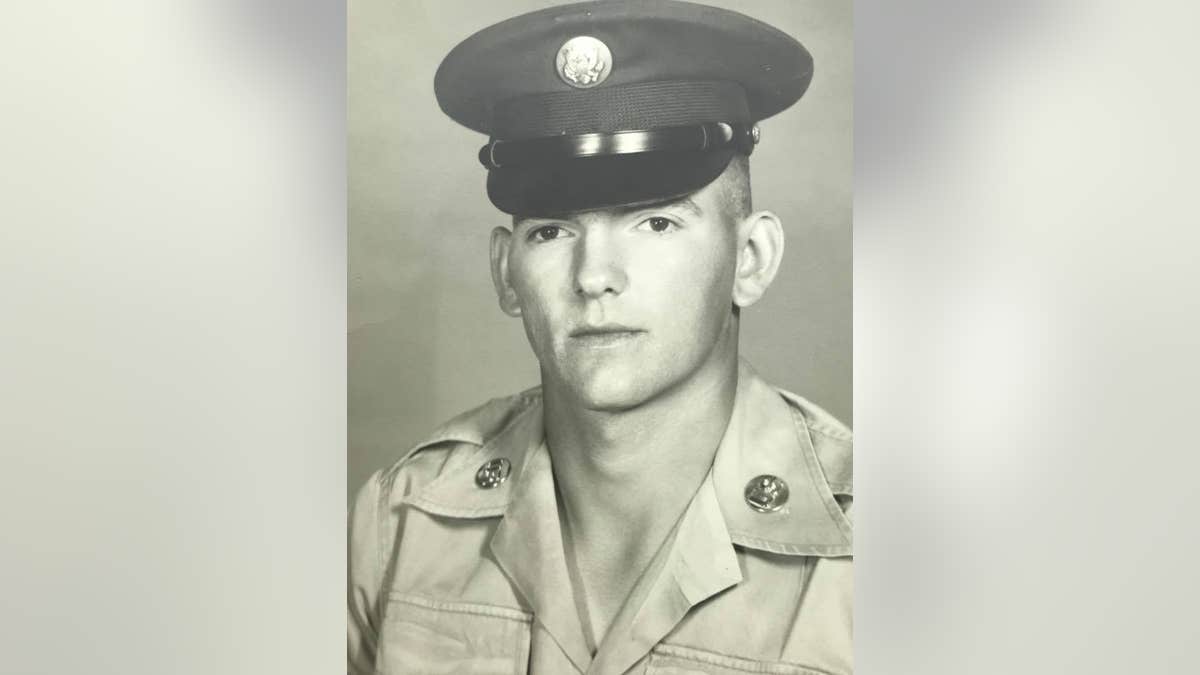
Green Beret medic Gary Beikirch, just out of basic training. (Photo courtesy the estate of Gary Beikirch)
Although in such rough shape, still under siege, Beikirch knew he still had a job to do. He was the chief medic. It was his job to help people survive. There were innocent women and children in the village that he and fellow Green Berets were tasked to defend — and they were getting wounded by the enemy too. Not to mention his friends and fellow soldiers.
Many in Beikirch’s position would have assumed their fight was over. But Beikirch refused medical treatment for himself. Instead, as he lay in the dirt on the battlefield, he called two helpers to his side and uttered two words that need to ring forever in the minds of freedom-honoring people everywhere.
"Carry me."
Carry me, so I can continue to help people.
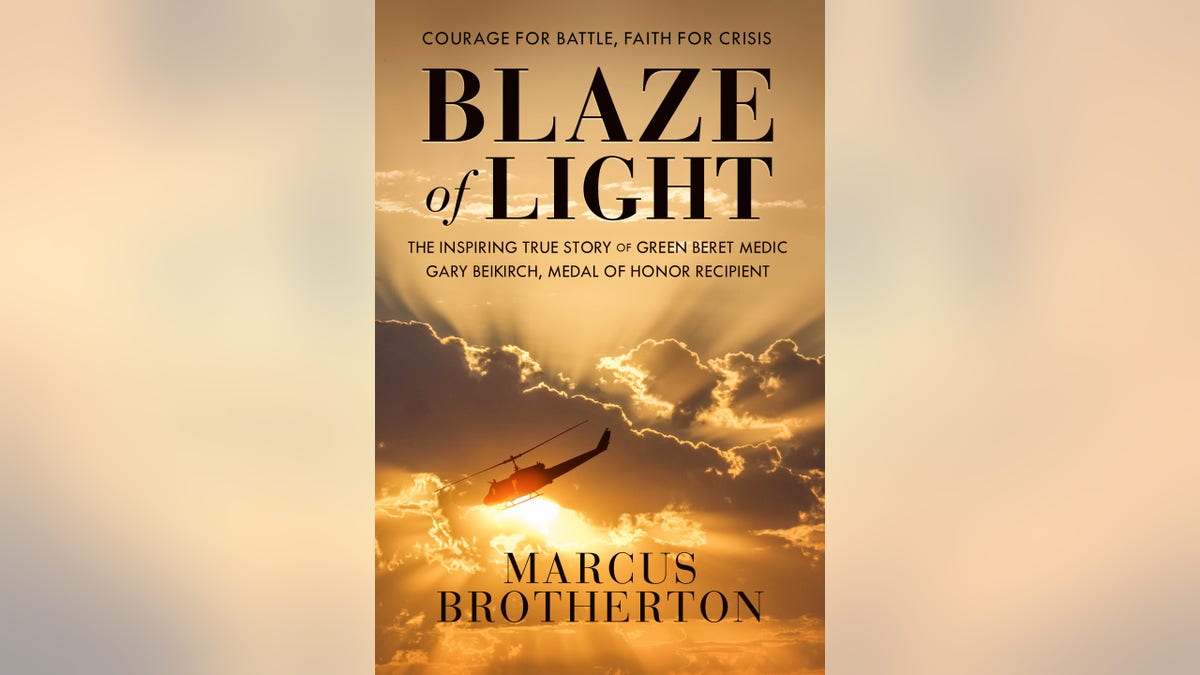
The cover of Green Beret medic Gary Beikirch’s biography, "Blaze of Light."
You can picture it: Here’s this Army medic — bleeding heavily, barely conscious, paralyzed from the waist down, can’t walk, still under fire — being dragged around the battlefield from wounded person to wounded person.
That’s how Beikirch continued to administer aid.
Beikirch finally collapsed from blood loss. He was airlifted to safety by helicopter during a terrifying firefight.
For his valor and selflessness during the siege of Dak Seang, Beikirch would be awarded the Medal of Honor, the nation’s highest and most-prestigious military decoration.
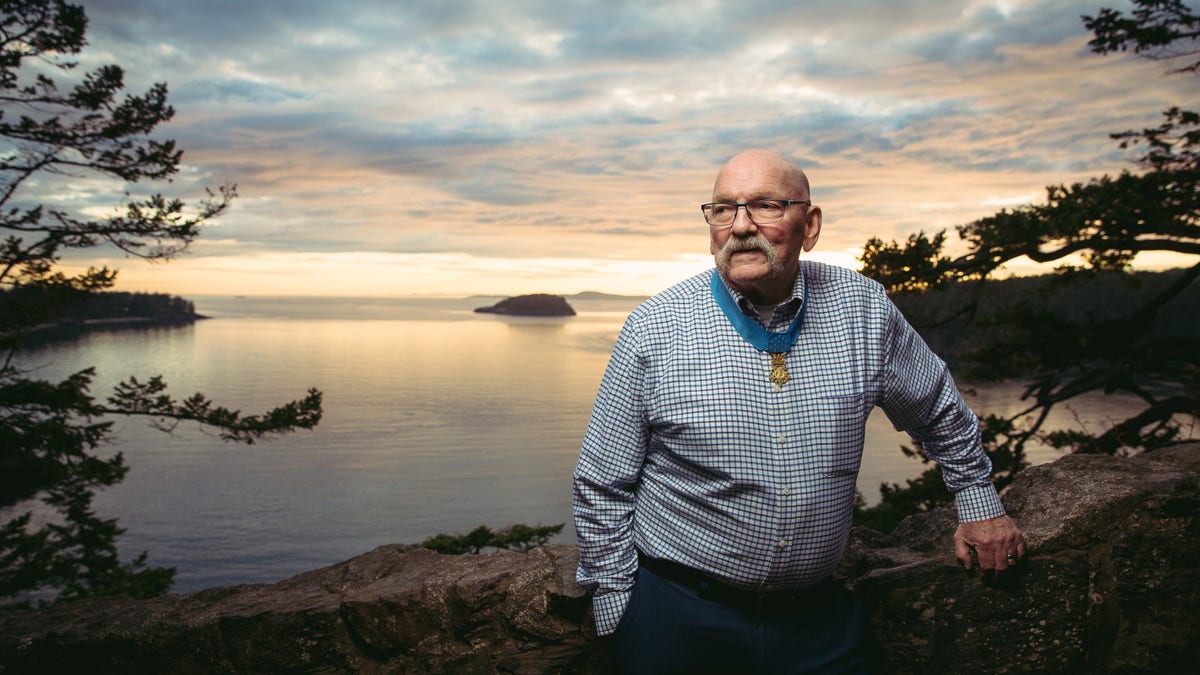
Green Beret medic Gary Beikirch received the Medal of Honor for his valiant actions during the siege of Dak Seang. (Photo courtesy Ben Bender)
This Veterans Day, we are all reminded to honor veterans such as Beikirch, people who have selflessly served in our nation’s armed forces. In today's world, where global conflicts and threats to peace persist, the significance of this day only grows larger.
Our veterans are testaments to the values of duty, honor, and selflessness. They defend freedoms and uphold human rights. We are invited to emulate the traits of nobility that they model. Even after Beikirch was hit hard, he never gave up.
CLICK HERE FOR MORE FOX NEWS OPINION
What about after the war? Following a series of prolonged hospitalizations, Beikirch regained the use of his lower body and relearned to walk. He returned to the United States, intent upon further studies and helping people.
In time, Beikirch earned a bachelor’s degree in psychology and sociology from the University of New Hampshire, then a master’s degree in educational counseling from the State University of New York (SUNY)-Brockport.
Although in such rough shape, still under siege, Beikirch knew he still had a job to do. He was the chief medic. It was his job to help people survive. There were innocent women and children in the village that he and fellow Green Berets were tasked to defend — and they were getting wounded by the enemy too. Not to mention his friends and fellow soldiers.
In his career as a middle school teacher and guidance counselor, he was a favorite of students and staff who knew him as their beloved "Mr. B."
He also became an ordained minister and served for many years as a counselor in hospitals and prisons with the Veterans Outreach Center and as chaplain of the Medal of Honor Society.
CLICK HERE TO GET THE FOX NEWS APP
Gary Beikirch passed in December 2021, of pancreatic cancer. His beloved wife, Lolly, and his family members were by his side. He was 74.
He is a true American hero. This Veterans Day ... do you remember his name?